Wonderful, Fabulous Tea
The smell of fresh, organic tea leaves on the lush, verdant Assamese Hathlikuli Tea Estate is intoxicating. Teas from Assam are world-renowned products that tea enthusiasts will pay top dollar to sip from their homes across dozens of countries. They’re recognized for their antioxidants and stress-reducing healing properties; Assamese teas have been revered as one of the finest quality tea regions on earth. It’s no wonder that select branches of Starbucks have been selling Hathikuli Tea Estate tea products for more than 2 years following a unique partnership opportunity.
Have you heard much about the farmers who harvest these coveted tea products?
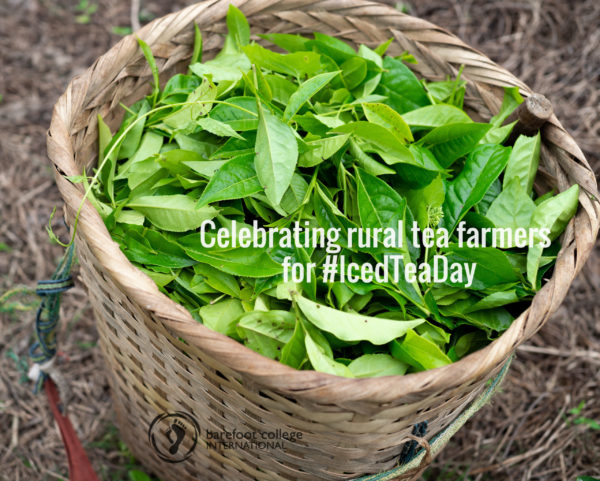 A basket of freshly plucked Hathikuli tea leaves
A basket of freshly plucked Hathikuli tea leaves
The Ladies Behind the Leaves
Tomorrow is #IcedTeaDay, and to celebrate, Barefoot College is giving the limelight to the Ladies Behind the Leaves– the Assamese Women Tea Farmers! Most tea farmers are women who typically work between 12 and 16 hours for 6 days a week, collecting around 50 pounds of leaves per day! On wages of 167 rupees per day (less than $3 USD), many of the women and their families just scrape by.
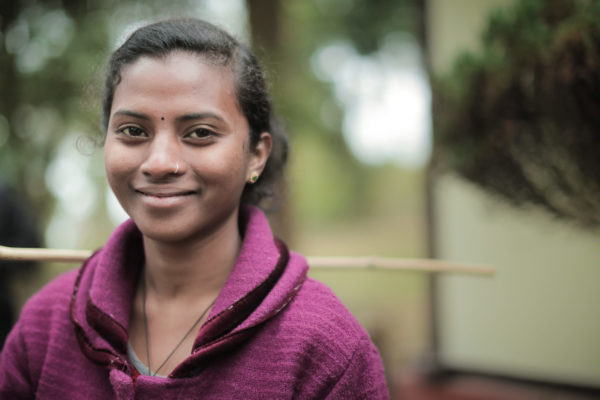 One of our Women Tea Farmer trainees, who learned about Solar Energy
One of our Women Tea Farmer trainees, who learned about Solar Energy
To boost income and general wellbeing, in partnership with Starbucks, we have been training some of these Women Tea Farmers through our Enriche, Solar and Beekeeping curriculums. These curriculums offer them additional livelihood avenues and also provide critical entrepreneurial skills paired with classes about self-awareness, women’s rights, sustainable living and health and safety. This could not come at a better time- due to COVID19, many tea estates have had to close down their operations, leaving the women without work.
In partnership with Starbucks, Barefoot College has trained more than 20 women so far. With an entrepreneurial mindset and a conscious land stewardship lens, Women Tea Farmers can, for example, build income in the solar sector, harvest honey as beekeepers or establish self-made small businesses all on the side of their regular work schedules. During these peculiar times of full estate closures, large amounts of extra time can be used to focus on these new additional skills they have acquired. Long-term, trainees will be better prepared and versatile for localized catastrophes that may leave them otherwise jobless.
 Women Tea Farmers in a class about Solar panels and lanterns
Women Tea Farmers in a class about Solar panels and lanterns
The Value of Solar
Installing solar systems in their villages reduces the reliance that the community has on traditional energy sources, such as harmful and costly kerosene, a smoke-intensive system that increases the risk of respiratory issues and accidental indoor fires. Renewable energy as a clean and reliable source of light, builds the resiliency of villages and removes the dependency they have on exterior entities.

Barefoot College would like to train more women tea farmers on our Solar, Beekeeping and Enriche women wellness curriculums. Our mission is to provide more women with dignified labour opportunities, through training, that they can manage on their own terms as needed.
All Tea Farmer trainees receive lessons on the importance of eco-friendly, sustainable lifestyles. Responsible environmental stewardship encourages our beneficiaries to protect their own lands and also regenerate them. These perspectives become handed down to the younger generations, perpetuating the mentality that living in harmony with nature benefits everyone. At an estate like Hathikuli, efforts already reflect this understanding, where new permaculture practices including growing peppercorn alongside tea plants have been implemented.
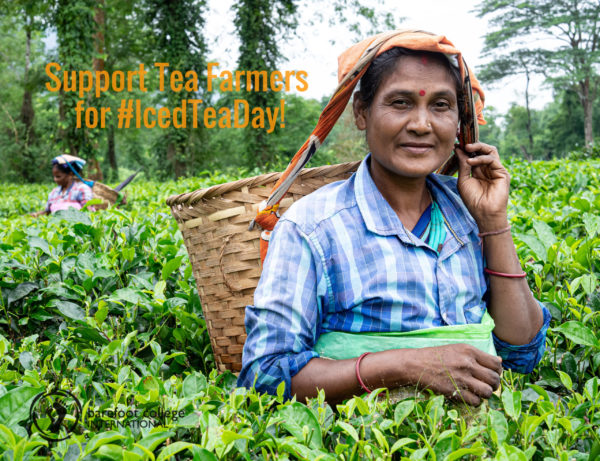 You can support our initiative to empower more rural Women Tea Farmers
You can support our initiative to empower more rural Women Tea Farmers
For World Environment Day, our Solar Sakhi trainees of Hathikuli Tea Estate celebrated by planting native saplings, flowers and fruiting plants all around the village. Mandira Patra, one of our Sakhi trainees gave a speech to her local peers on the importance of protecting nature and giving back for the health of both the land and its people. Our staff of Social Work and Research Centre (SWRC) in Sikkim, where our latest batch of Women Tea Farmers trained, also did a cleanup around the centre and planted trees and edible flora.
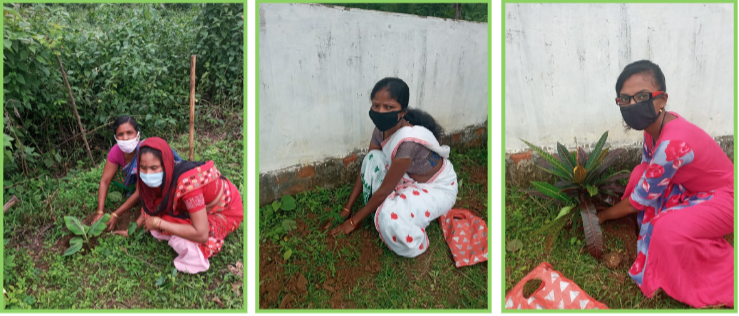 Trainees celebrate World Environment Day by planting indigenous plant species
Trainees celebrate World Environment Day by planting indigenous plant species
Giving Back for Iced Tea Day
We’re celebrating this #IcedTeaDay by appreciating the tantalizing aroma of freshly brewed, steeped and chilled teas. We’re also giving gratitude the Women Tea Farmers who harvest these coveted leaves. Our programs continue to ensure that their security endures through these unprecedented times and that the ability of rural communities to adapt to a changing climate and evolving planet keeps growing.
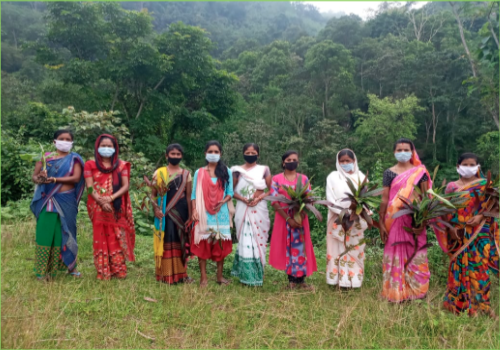 Our trainees, holding soon-to-be planted saplings in their village
Our trainees, holding soon-to-be planted saplings in their village
